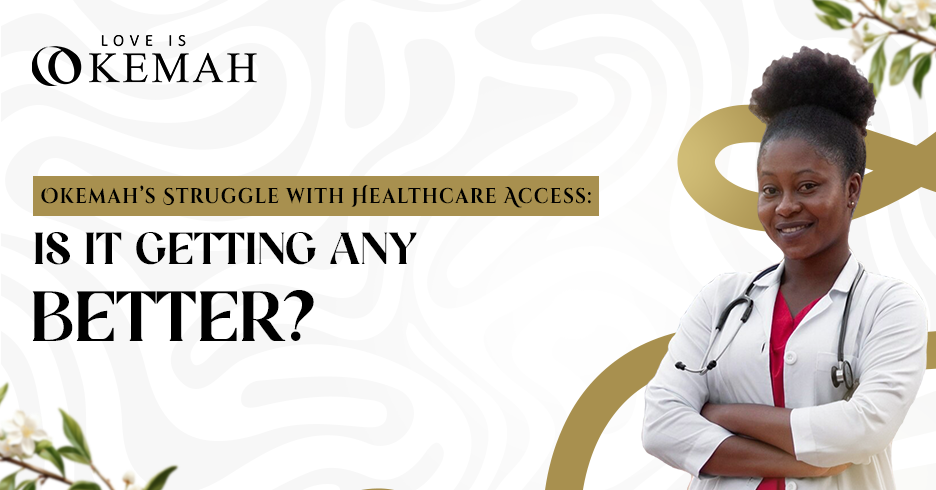
Okemah’s Struggle with Healthcare Access: Is It Getting Any Better?
“Imagine falling ill in a small town where healthcare is miles away, not just in distance but in accessibility.” This isn’t just a hypothetical situation—this is the reality for many residents of Okemah, Oklahoma. Nestled in Okfuskee County, Okemah carries a rich history and a tight-knit community spirit, but it’s also been wrestling with a persistent problem: access to healthcare.
For years, the lack of healthcare services, doctors, and facilities has forced people to travel far, pay more, and often go without the care they need. The question on everyone’s mind remains: Is healthcare access in Okemah improving, or is the struggle ongoing?
The Healthcare Gap: A Long StandingLongstanding Battle
For decades, healthcare access in Okemah has been challenging. Limited healthcare facilities, coupled with a shortage of specialists and primary care doctors, make getting proper treatment a significant hurdle for residents. Okemah Community Hospital, a crucial facility in the area, has tried to meet the demand but struggles with limited resources, budget constraints, and a lack of specialized care.
Imagine the distress of having to drive 45 minutes or more to Tulsa or Oklahoma City for something as basic as a dental check-up or specialist consultation. This inconvenience often forces residents to delay or forego healthcare altogether. It’s not just a matter of distance—it’s also about the time, cost, and stress that come with it.
Why Is Healthcare So Limited in Okemah?
Several factors contribute to the healthcare challenges faced by Okemah:
- Rural Location: As a rural town, Okemah lacks the population density that attracts major healthcare providers, who often prioritize larger urban centers.
- Economic Strain: Many residents in Okemah are on limited incomes, making it difficult for healthcare providers to maintain profitable operations. This leads to underfunding of medical services and shortages of trained professionals.
- Transportation Barriers: Even if medical services are available, getting to them is another story. Without reliable public transportation, residents often rely on family, friends, or long trips to access healthcare.
- Limited Insurance Coverage: A significant number of Okemah’s residents are either uninsured or underinsured, making it harder to afford even the basic care that is available.
Small Wins: Signs of Progress
It’s not all bleak, though. In recent years, there have been efforts aimed at improving healthcare access in Okemah:
- Telehealth Adoption: One promising shift is the rise of telehealth services. Local providers and hospitals have started offering virtual consultations, which means that residents can get advice, prescriptions, and basic care without leaving their homes.
- Mobile Health Clinics: The introduction of mobile clinics has brought essential services to Okemah’s doorsteps. These clinics offer preventive screenings, vaccinations, and even some basic treatments, helping bridge the gap for those who can’t travel far.
- Community Partnerships: Okemah’s local government and healthcare organizations are working together to seek funding for better facilities and expanded services. Grant applications and partnerships with statewide health initiatives have helped secure more resources, albeit gradually.
- Health Education Programs: Local efforts to promote health awareness and preventive care have also seen some success. Health fairs, wellness workshops, and school-based programs have started to shift the focus towards community health, aiming to reduce long-term healthcare costs by promoting healthy living.
The Roadblocks That Persist
Despite some progress, major obstacles still stand in the way of achieving true healthcare equity in Okemah:
- Limited Specialists: While basic care has improved, the town still struggles with a lack of specialists. This means that residents with chronic conditions, mental health needs, or specific medical requirements often need to travel to larger cities.
- Economic Challenges: The cost of healthcare, even with improvements, remains a significant barrier. For many residents, even affordable options can still be out of reach, particularly for those without insurance.
- Aging Population: As the population in Okemah ages, healthcare needs are only growing. The demand for long-term care facilities, geriatric specialists, and home healthcare services is increasing faster than the supply.
- Recruitment of Healthcare Workers: Attracting and retaining healthcare professionals remains difficult. Okemah needs incentives—better pay, housing, and career growth opportunities—to draw skilled doctors, nurses, and other providers.
What Does the Future Hold?
So, is healthcare access in Okemah getting better? The answer is both yes and no. Progress has been made, but it’s incremental and often feels like too little, too late for many residents. The solutions that have been implemented so far, while helpful, need to be scaled up and supported by a long-term strategy.
Local advocates believe that more consistent funding, better healthcare policies, and stronger support from the state government are necessary to make lasting improvements. There’s hope that healthcare in Okemah can move from being reactive to proactive, focusing not just on treatment but also on prevention and wellness.
The Call for Change: A Community’s Voice
The people of Okemah are resilient. Their voices reflect a strong desire for better healthcare, one that is not only accessible but also tailored to their needs. Residents want to see a healthcare system that works for them, one where distance, cost, and availability are not barriers. As local officials and healthcare providers continue to push for change, the community’s commitment to better health could be the driving force that finally makes a lasting difference.
Okemah’s struggle with healthcare access is far from over, but with determination, collaboration, and a little bit of optimism, the town’s healthcare story could shift from one of scarcity to one of promise.
